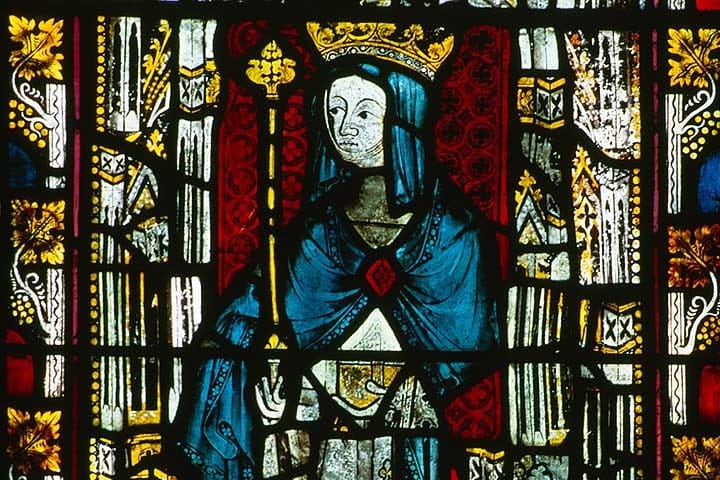Easter - Pascha
The earliest recorded use of the word "Easter" in English dates from the 8th century.

Key words
- Anachronism:a person, thing, or idea that exists out of its time in history, especially one that happened or existed later than the period being shown, discussed, etc.
The film was full of anachronisms. Jamaicans didn't arrive in Britain until centuries later.
- Commemorate: to remember officially and give respect to a great person or event, especially by a public ceremony or by making a statue or special building
We are here to commemorate those who lost their lives in the war.
- Determine: to control or influence directly; to decide
We should be allowed to determine our own future.
- Inevitably: in a way that cannot be avoided
Their arguments inevitably end in tears.
- Address: to give attention to or deal with a matter or problem
The issue of funding has yet to be addressed.
- Equinox: either of the two occasions in the year when the centre of the sun is directly above the Equator, and day and night are approximately equal in length
They celebrate the autumn equinox.
Read the article to find the answers
- What is celebrated on Easter Sunday?
- What was the Anglo-Saxon name for April?
- Who decided when Easter should be celebrated in England?
- How is the date of Easter determined?
Easter
The Gospels tell us that Jesus was crucified during the Jewish festival of the Passover. Christians commemorate his death on what is now called Good Friday and then celebrate his resurrection three days later on what is known as Easter Sunday. It is considered by many to be the most important date in the Christian calendar.
In England, April was once called Ēastermōnað, or Easter month. The Anglo-Saxon celebration of Easter was originally a celebration of the Germanic goddess of spring, Eostre.
A Problematic KJV Translation
At the Council of Nicaea, Emperor Constantine ensured that the Christian celebration of the resurrection of Jesus did not coincide with the Jewish festival of Pascha, reflecting a desire to distance Christianity from Jewish traditions.
Easter is used anachronistically in the KJV and by most contemporary academics and christian commentators. In Emperor Constantine's letter to all churches concerning the date of Pascha from 325 AD, they translate pascha (πάσχα) as Easter, even though Constantine did not use the word Easter.
The name Easter was not used until centuries later. The earliest recorded use of the word Easter in English dates from the 8th century. However, it wasn't until the 12th century that it became widely used to refer to the Christian celebration of the resurrection of Jesus Christ.
In their introduction the translators of the KJV said of Pascha:
... we have shunned the obscurity of the Papists, in their ... holocausts ... pasche, and a number of such like ... we desire that the Scripture may ... be understood even of the very vulgar.
In short, they claim to have used the word Easter anachronistically so that even the most uneducated people could understand the Bible. But, the word Easter appears only once in the King James Bible, in chapter 12 of the Acts of the Apostles. All the other 71 instances of pascha (πάσχα) are translated as Passover.
After the Civil War, Parliament abolished Easter and all other holy days. Easter Sunday became an ordinary Sunday until the monarchy was restored and Easter celebrations returned. Today, the English eat millions of Creme Eggs and Hot Cross Buns as part of the celebrations.
Determining the date of Easter in England
In 597, monks sent by the Pope in Rome spread the Christian message throughout Anglo-Saxon England from Canterbury in the south of England. At the same time, Irish monks were Christianising England through their monastery at Iona, off the west coast of Scotland.
Northumbria was Christianised by both Roman and Irish missionaries. But the Roman and Irish traditions had different practices, particularly in the way they calculated the date of Pascha. This inevitably led to disagreements about when Pascha should be celebrated.
Oswiu, King of Northumbria, was converted by Irish monks. His wife, however, was converted by monks from Rome. One year the king was happily celebrating Pascha while his wife was still fasting, so he decided to call a meeting of church leaders from both groups. They decided that the best way to determine the date of Pascha was to use the Roman method.
The Roman method
The First Council of Nicaea was called by the Roman Emperor Constantine to address various issues, including the date on which Pascha should be celebrated. The Council decided that Pascha should fall on the first Sunday after the first full moon following the spring equinox, which is approximately March 21st. This means that Easter can fall anywhere between March 22nd and April 25th. but will be on a different date to the Jewish festival of Passover.
Discussion questions
- Do you have any questions about any of the vocabulary or grammar in this article?
- How do you celebrate spring in your country?
- Do you celebrate Easter in your country?
- Are there any famous seasonal foods that you eat in spring?

Book a Lesson
Improve your English language communication skills by practicing with a qualified and experienced native speaker.





